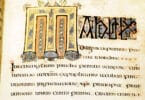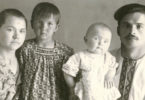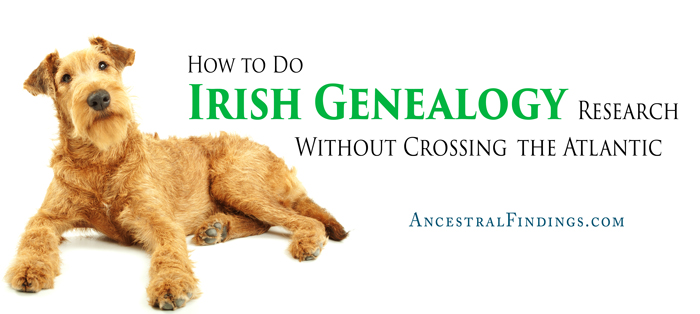The Scots-Irish (formerly referred to as Scotch-Irish) are a unique group of American settlers from Presbyterian congregations in Ulster, Ireland. A smaller number came from other Irish counties, but the vast majority were from Ulster. These settlers came to America from Ireland in the 1700’s and 1800’s. More than 35 million Americans today have some Scots-Irish descent, as the numbers of earlier immigrants were numerous; this equals about twelve percent of the American public today. Chances are pretty high that you may have Scots-Irish descent in one or more of your family lines if your ancestors have a long history in America.
Interestingly, the word “Scots-Irish” (or “Scotch-Irish”) is only used in America. In the United Kingdom and Ireland, those with a similar ancestry are referred to as Ulster Scots. Most of the Ulster Scots were not even originally from Ireland. The majority of them were from the England or Scotland and had gone to Ireland in search of better economic opportunities and religious freedom. As Presbyterians, they were subject to persecution from the Anglican Church of England, and the Scottish Episcopal Church. Nearly 200,000 Presbyterians from Scotland settled in the Ulster area of Ireland between 1608 and 1697. Some of the English emigres were also Presbyterian, especially after the English King Charles I started to try to force them into the Anglican Church of England. Later, the English church began to assert their control over Ireland, which it mostly left alone, with the goal of forcing everyone into the Anglican church. This reach of the monarchy into religion in Ireland is what led most of the immigration from Ulster to America. Religious freedom was greater there.
The earliest known use of the term “Scotch-Irish” was by Queen Elizabeth I of England in 1573 in a letter about the citizens of Ulster. The first known use of the term in America is in a letter from Maryland in 1689. Over the centuries, the term fell out of use in the United Kingdom and became a purely American word for people of the Presbyterian Ulster Irish descent (again, some of whom were originally Scottish, or even English).
The vast majority of the ancestry of the Scots-Irish is Irish. However, the large number of Scottish religious refugees living in Ireland at the time of the immigrations to America meant some families had a Scottish element to them, which gave this particular group their unique name. When they arrived in America in the early years of immigration, most of them simply identified themselves as Irish. It was only after the Irish Potato Famine in the 1840’s that the descendants of earlier immigrants from Ireland began identifying themselves as Scotch-Irish, or Scots-Irish. This was primarily to distinguish themselves from the newer Irish immigrants from the famine, who were largely Roman Catholic, with no Scottish ancestry.
Most of the new Catholic immigrants stayed in the port cities where industrial jobs were. However, the earlier, Presbyterian immigrants had long since immigrated further into the interior of America and were by then well settled in the Appalachian area. During the initial immigration in the 1700’s, the group who would become the Scots-Irish went mostly to Pennsylvania. They used that location, which bordered the early American frontier, to immigrate into Virginia, the Carolinas, Tennessee, Kentucky, Georgia, Florida, Alabama, Mississippi, and Louisiana. Much work on researching the history of the Scots-Irish in America today is done in Appalachia, where traces of their former Irish and Scottish accents can still be detected in the local dialects.
The traditional folklore and music of the Appalachian descendants of the Scots-Irish also point to their roots in Ireland, Scotland, and England. Researchers have noted that traditional Appalachian folk music is closely reminiscent of songs and music from Northern England and the lowlands of Scotland, rather than Highland or Gaelic Scottish culture. The folk tales they tell also have these origins.
As far as employment, the Scots-Irish immigrants who came before the American Revolution were servants and craftspeople. Many of them eventually became skilled workers, especially in the construction trades. Others became entrepreneurs. They came in waves of immigration from the early 1700’s to around 1930 when immigration from Ireland dropped off in the United States. Each wave of immigrants was largely Presbyterian, and this religion played a huge role in shaping Scots-Irish culture in America.
While many of the Scots-Irish in America today strongly associate with Scottish Highland culture, their actual origins in the lowlands of Scotland, Northern England, and Ireland are obscured to them. Still, their culture, which is still largely centered in Appalachia today, is unique in America, Ireland, England, and Scotland. The isolation they have experienced for as much as two centuries in Appalachia has given them a cultural distinction not frequently seen in America. The closest similar example may be the Creole people in Louisiana.
If you have Scots-Irish ancestors, you may already know it, based on family origin stories handed down over generations. You may also discover Scots-Irish ancestors as you do your genealogy. As transportation options improved, it became easier for people to move out of Appalachia, so not all Scots-Irish in America today still lives there (though that is still where the largest concentrations of them are located). It may be difficult to trace them, as many Appalachian and other southern areas did not keep good records, and those that did may have lost records over the centuries. With wooden courthouses being the norm until the early 20th century, plenty of southern courthouses burned many times, taking valuable Scots-Irish records with them.
The best you can do is look for the areas where the courthouses remained intact through the centuries, and see what you can find there. Look into your family’s oral history and try to trace its veracity. Ask for family artifacts from those who may have them, such as family Bibles and samplers. Do a DNA test and get matched to genetic relatives who may know more about your Scots-Irish ancestors, or who may even still be located in Ireland or the United Kingdom, and ask them about ancestors they know of who may have immigrated to America in the 1700’s and 1800’s. Doing these things can shed some light on your Scots-Irish family.






